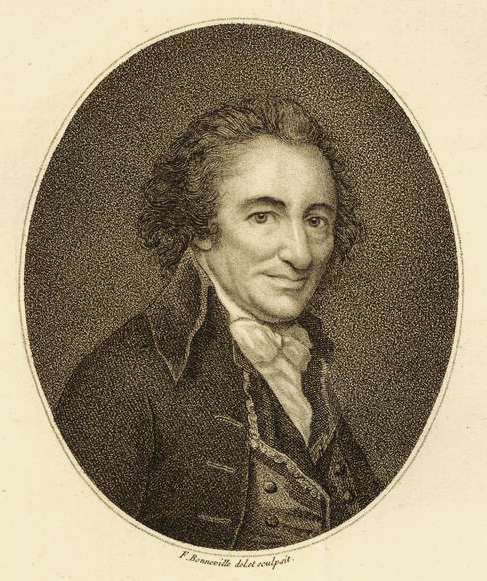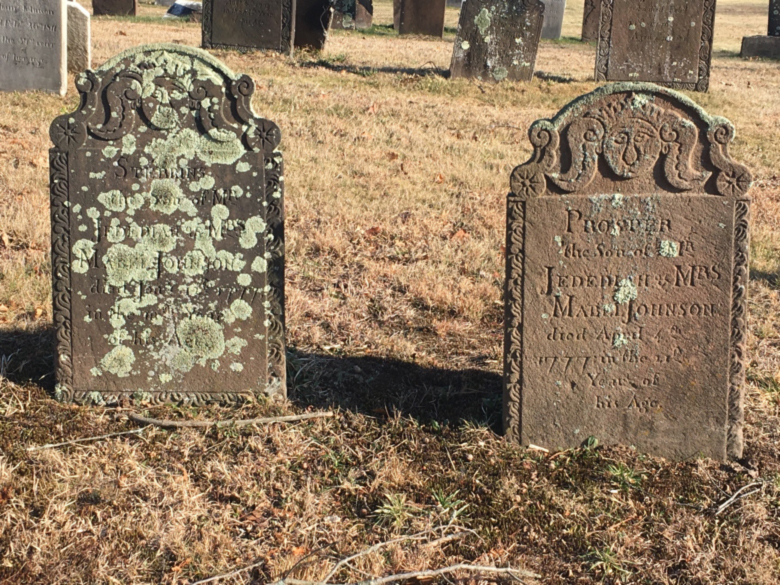Book Review: American Sanctuary: Mutiny, Martyrdom, and National Identity in the Age of Revolution by A. Roger Ekirch (New York: Pantheon Books, 2017)
This is a quirky and fascinating three-part story, set not during the Revolution proper, but somewhat later, focusing on the years 1797 to 1800. The three parts, each occupying one noun of the subtitle and roughly a third of the book, deal with the bloodiest mutiny ever suffered by the British Navy, in 1797; a complex extradition case in Charleston, in 1799; and the devastating political fallout that resulted from that extradition that, the author contends, profoundly affected both the national election of 1800 and the American national character. All of it, incidentally, largely ignored and forgotten by history.
A quick background refresher about the year 1797: Europe was embroiled in war, and the United States was desperate to stay out of it, despite constant irritation with both sides which was affecting the two emerging American political factions in different ways.
- In February, the British won a major naval victory over the Spanish at Cape St. Vincent.
- In March, John Adams became the second president of the United States.
- In April, the British navy suffered a major humiliation when it failed to take San Juan, Puerto Rico.
- In April, May, and June, the British establishment was shocked by the great naval “mutinies” at Spithead and the Nore. These mutinies were effectively strikes, protests against the ill treatment of sailors. They were bloodless—if you don’t count the twenty-nine men hanged for inciting them.
Now to our story: In February 1797, command of the HMS Hermione, a thirty-two-gun frigate stationed in the Caribbean with a complement of 150, was transferred to one Hugh Pigott. The Hermione—no relation at all to Lafayette’s L’Hermione—had a notorious history among Americans for confiscating American shipping for “trading with the enemy,” and for impressing American seamen. Captain Pigott personally had an unsavory reputation for ordering far more floggings than the infamous Captain Bligh of the Bounty. Both the ship and the captain were much loved by the naval brass headquartered in Jamaica, however, because they brought in prizes, captured ships and cargoes which could be sold to the substantial private emolument of admirals, officers, and sailors.
But Captain Pigott’s zeal went way too far. On September 20, 1797, the Hermione was in a gale in the Mona Passage between Puerto Rico and Hispaniola. The captain screamed at the topmen that he would flog the last man back from furling sails, and he so terrified the sailors that three men in succession leapt for the yard, missed, and tumbled fatally to the deck, after which Pigott not only cursed them, he had their corpses unceremoniously heaved overboard. The following night, his crew attacked and murdered him, threw him overboard, and also murdered nine other commissioned and petty officers. This rampage became notorious as the Royal Navy’s bloodiest mutiny ever. The sailors headed due south for La Guaira, Venezuela, where they surrendered the ship to the Spanish and dispersed. When the British pieced together what had happened, a month later, they began a relentless manhunt for the mutineers that continued for a decade.
Guess where some of the Hermione’s sailors fled to! In April 1798, three of them were found in Perth Amboy, New Jersey. The British ambassador to the United States emphatically demanded their extradition, but all three insisted they’d been impressed and had fought for their freedom. A grand jury in Trenton acquitted them, to the ambassador’s despair.
The case that became a cause célèbre began in February 1799, in Charleston, South Carolina. One Jonathan Robbins was arrested there after a shipmate asserted that Robbins had bragged of being on the Hermione. Extradition was requested, but not immediately granted. Robbins, however, remained under lock and key. The federalist federal judge, Thomas Bee, solicited the administration’s opinion, in the light of the recent Jay Treaty with Great Britain, which had an amorphous extradition clause. In May the ambassador begged Secretary of State Timothy Pickering to intervene. Pickering wrote to President Adams, who was trying to manage the government from his home in Massachusetts. Without consulting the US Attorney General, Pickering offered sophisticated but casuistic arguments in favor of extraditing Robbins. Among other things, Pickering—the closest the story has to a villain—made no mention of Robbins’ possible American citizenship or impressment. Adams sent Pickering a preoccupied but fateful reply: “How far the President of the United States would be justifiable in directing the judge to deliver up the offender is not clear,” he wrote. However, he concluded, “I have no objection to advise and request him to do it.”
On July 1, 1799, Judge Bee was ready to surrender Robbins to the British, but the British ship sent to get him was delayed. By the time it showed up, Robbins had suddenly found defenders who filed a habeas corpus case for his liberty. Robbins asserted he was a US citizen, born in Danbury, Connecticut, and was in possession of a certificate often acquired by sailors of the time confirming the same, which had been attested in New York City in 1795. Robbins claimed he’d been impressed onto the Hermione, but had taken no part in the murders. The British countered that he was really the Irish-born Thomas Nash, who had voluntarily joined the Navy and was one of the most wanted of the ring-leaders. The case was argued back and forth for several days, not always competently, but Judge Bee finally gave Robbins up on July 26. He was taken to Kingston, Jamaica, court-martialed on August 15, and hanged four days later.
While Robbins’ situation had caused no public outcry during his months of incarceration, the reaction to his extradition and ultimate fate was immediate, furious, and long-persisting. In February and March 1800, the United States House of Representatives spent two solid weeks debating New Yorker Edward Livingston’s proposal to censure President Adams for his interference in the Robbins affair. The motion was narrowly defeated, but a federalist counter motion to approve Adams’ conduct was withdrawn when his partisans realized it too had no chance of success. In April, Philadelphia federalists prosecuted and jailed a man under the controversial Sedition Act, for protesting the Robbins case among other issues. The author cites correspondence and numerous articles from the year to suggest that Robbins’ martyrdom was a major factor in Adams’ loss to Jefferson in the national election. He goes on to cite many instances, right up to 1981, where the Robbins case has been mentioned in continuing American quandaries over extradition, immigration, and asylum.
Yet, who today has ever heard of Jonathan Robbins and his martyrdom? The author admits he’d never heard of him until he began research ten years ago. How has this event been so lost to history? Perhaps it’s because the tale doesn’t reflect all that nobly on anybody. The British eagerly played up the violence of the mutineers, and played down the brutality of Captain Pigott. The federalists insisted they were struggling to keep the peace between the US and Britain and France—surely arguable—but ignored how lackadaisically Judge Bee, Secretary Pickering, and President Adams had behaved in this capital matter. And those Americans who were piously outraged by the affair got their comeuppance forty years later, when an American ship carrying slaves was overwhelmed by its human cargo and sailed to the recently-emancipated Bahamas; when American officials demanded their extradition, the British refused.
American Sanctuary is an intriguing, off-beat story, very well told, and highly recommended.













2 Comments
An excellent review with lots of good detail. I will now have to read the book. BTW I read your website, also well done. I have ordered your “Exquisite Folly” with anticipation. Phil Giffin
Thank you kindly, sir. I hope both will meet your expectations.